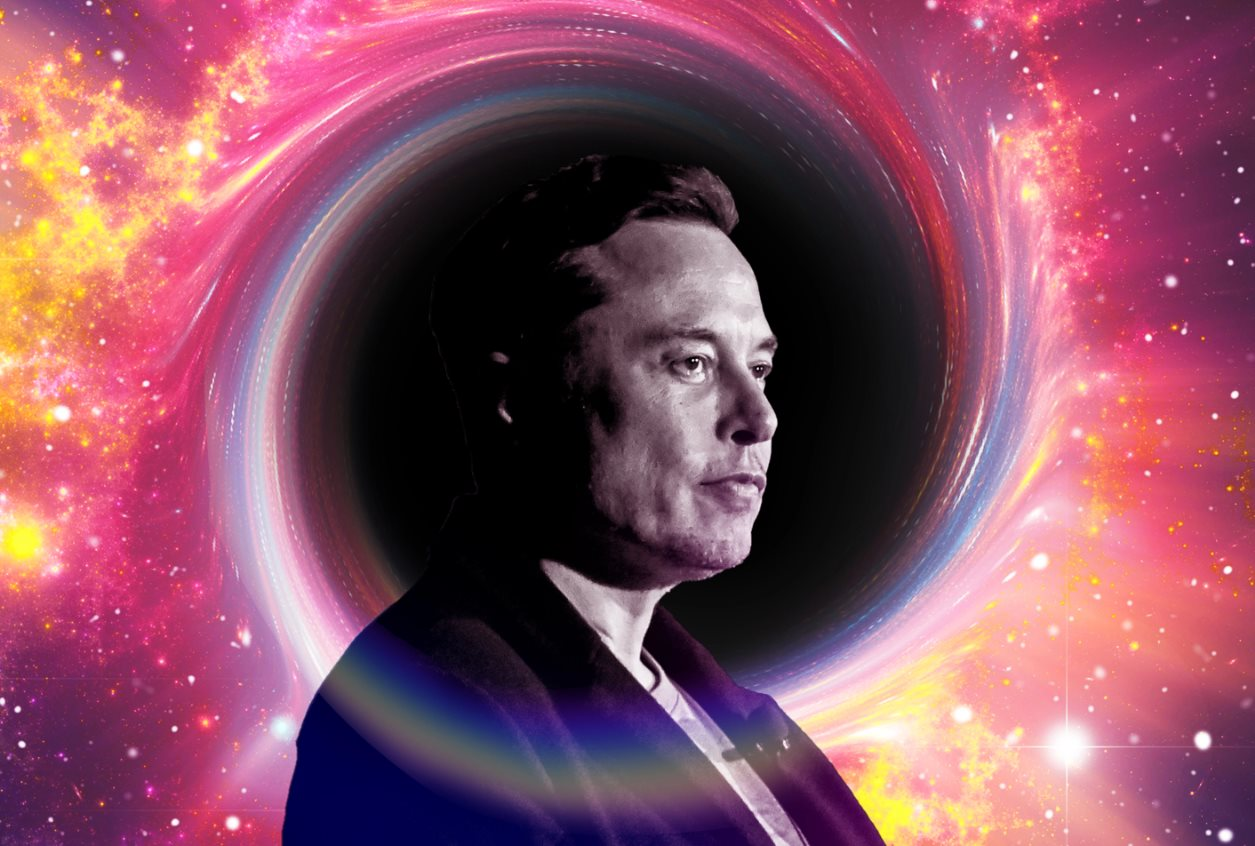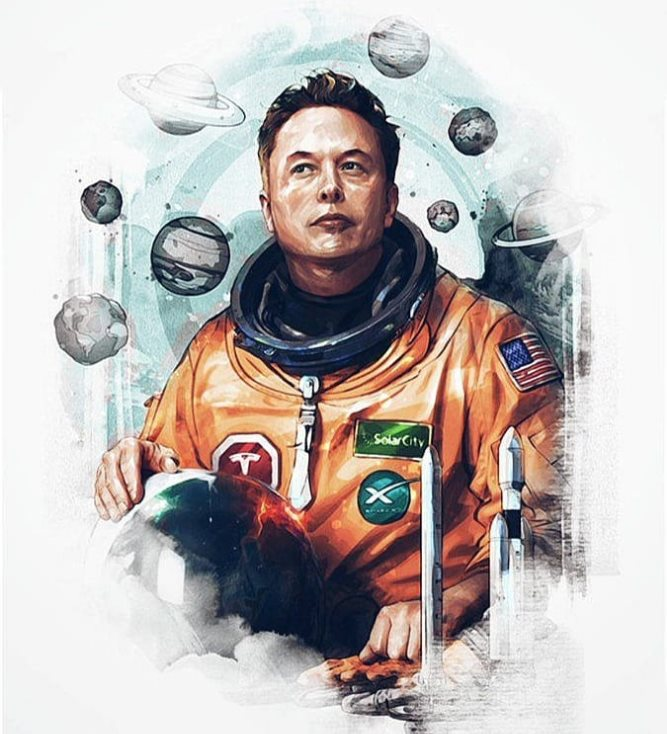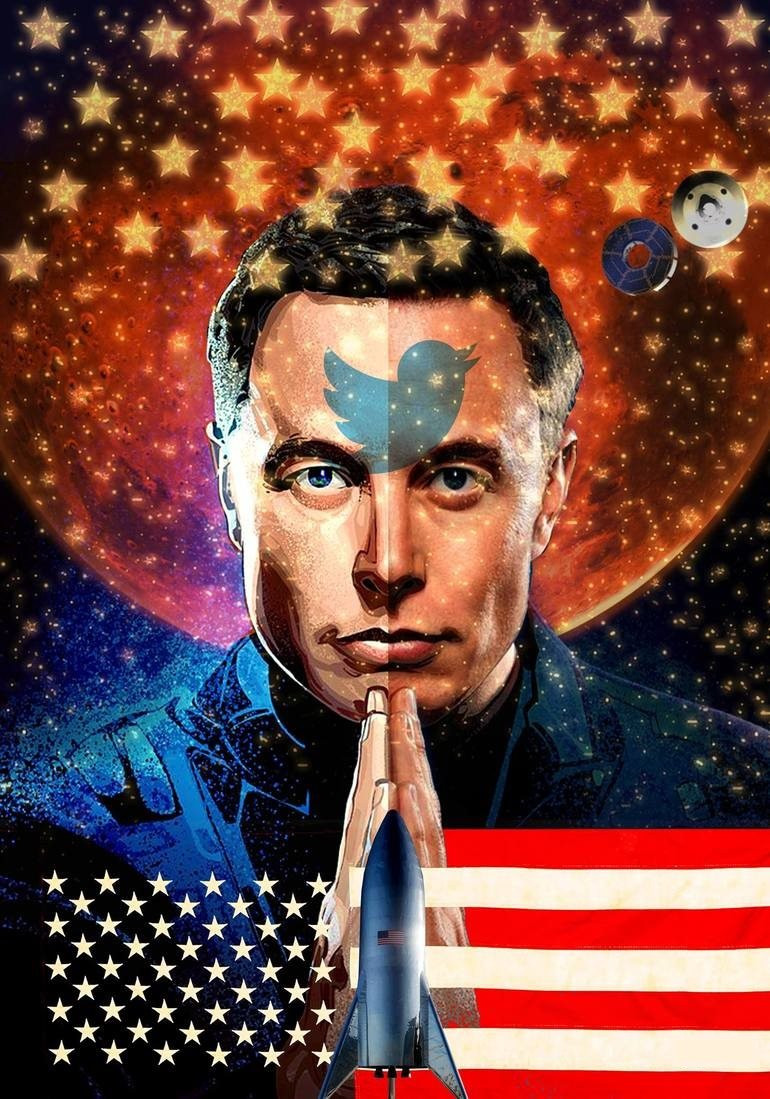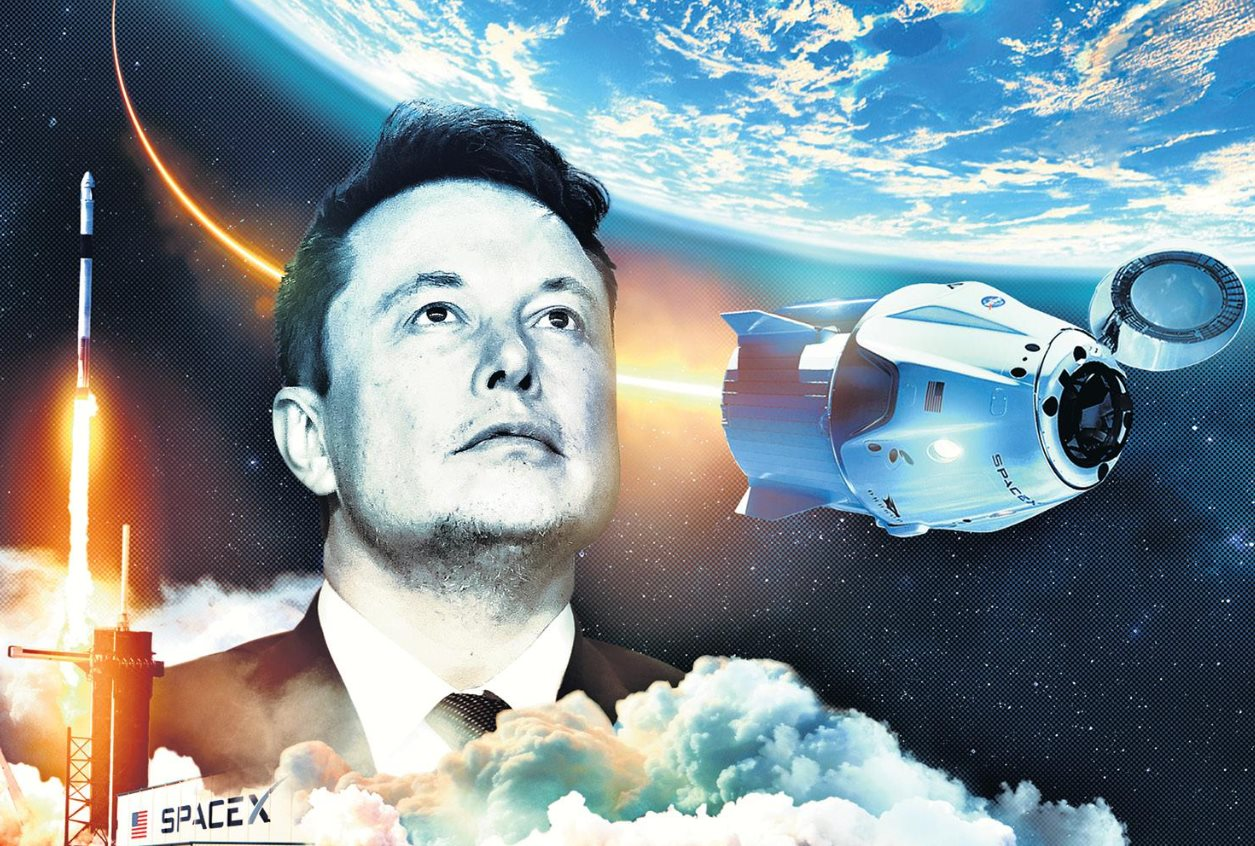Morgan Stanley estimates that the electric vehicle industry’s autonomous driving service will increase the total market value of satellite telecommunications 13-fold to $95 billion.

The Nikkei Asian Review recently reported that Tesla founder, billionaire Elon Musk is currently dominating the low-sky space satellite industry with SpaceX. Currently, this company accounts for more than 60% of the satellites launched into space so far this year.
Thus, after revolutionizing the electric car industry, Elon Musk began to become a “dominant” in a new field.
According to Nikkei, satellites in low orbit can transmit telecommunications signals faster than conventional ground-based base stations in some markets. Currently, billionaire Elon Musk, the founder of the world’s most valuable electric car company, is pioneering and investing a large amount of resources in this growing market.

During a meeting with Indian Prime Minister Narendra Modi on June 20, 2023, the Tesla founder offered satellite telecommunications services to this market, emphasizing that the new product could be very useful for telecommunications connectivity in remote areas with weak networks of India.
Hiện Ấn Độ có 1,4 tỷ dân nhưng chỉ 2% số hộ gia đình của nước này là có đường truyền Internet tốc độ cao ổn định.
By design, one SpaceX booster can carry up to 60 satellites into orbit. So far this year, the company has sent more than 1,000 satellites into low-Earth orbit. Data from Jonathan McDowell of the HSCA Space Research Center shows that SpaceX currently accounts for more than 60% of the world’s satellite launches so far this year.
Since 2019, Elon Musk’s home company has put nearly 5,000 satellites into space out of the 42,000 satellites it has registered to operate. SpaceX’s biggest rival, Amazon, has only launched prototypes of its satellites at the end of 2022.
In theory, Elon Musk’s satellites can transmit high-speed Internet because they are located in low orbit, only 300-600km from the earth’s surface. Meanwhile, ordinary satellites are 36,000km from Earth. To use the service, SpaceX customers only need a set of 50cm antennas to catch the waves.
Currently, SpaceX is still mainly aimed at business services. Some of its customers include Royal Caribbean Group, Japanese low-cost airline Zipair Tokyo, etc.

The Tesla of telecommunications?
Currently, Elon Musk’s SpaceX is expected to become a new “Tesla” for the telecommunications and satellite Internet services industry. In addition, the transport capacity of boosters can also create new businesses related to space and space that have not been explored much before.
In terms of transmission speed, Elon Musk’s Starlink satellite network is said to be able to compete with today’s telecommunications and terrestrial Internet networks. Elon Musk’s service is even 40% faster than the UK’s Internet service network and twice as fast as in Australia.
In addition, the use of satellites will help businesses save money to build cable transmission lines, which is an extremely big obstacle for rural areas with difficult terrain or areas with weak infrastructure.
Facing this potential, consulting firm Euroconsult predicts that the number of customers using satellite Internet-telecommunications services will double, from 71 million globally in 2023 to 153 million in 2031.
Morgan Stanley estimates that the total market value of satellite telecommunications services will increase 13-fold between 2020 and 2040, reaching $95 billion thanks to the boom of the electric vehicle industry itself. The satellite network will help the autonomous driving system of the electric vehicle industry continuously update software and situation everywhere, thereby supporting each other.
However, the satellite telecommunications industry also has many risks, especially in the capital and technical sectors because this is a relatively new market. British satellite operator OneWeb went bankrupt in 2020 after running into financial difficulties, despite later being bailed out by the government.

Even Elon Musk’s own SpaceX cannot live on its own due to projects that have not brought enough profit. The company still relies largely on subsidies from the Washington government as well as contracts from the US space agency (NASA).
However, SpaceX chairman Gwynne Shotwell is still confident that its Starlink satellite network will bring in revenue in 2023.
News
Dave Crosby, the individual who captured the attention of all three Voice Judges in record time. Watch his incredible performance – it’s truly astonishing!
From the moment he graced the stage, it was evident that a remarkable performance was about to unfold. As Dave serenaded the room, a captivating melody filled…
Tom Brady Sparks New Dating Rumors After Being Spotted Out At Dinner With Popular Sideline Reporter
Tom Brady has set off another wave of dating speculation following his brief romance with Irina Shayk. According to TMZ, the former NFL star was spotted out in Beverly…
REPORT: Several Chiefs & Dolphins Players Suffered Frostbite During Saturday’s Grueling Playoff Showdown
Multiple players are said to have suffered frostbite during Saturday night’s playoff showdown between the Kansas City Chiefs and Miami Dolphins at Arrowhead Stadium. The game was the fourth-coldest in NFL…
Female Eagles Fan Unleashed All Sorts Of Cruel, NSFW Insults Towards Bucs Fans After Her Team’s Ugly Wild Card Loss In Tampa (VIDEO)
A female Eagles fan went off on Buccaneers supporters after having to sit through a frustrating Wild Card fixture in which her team put just nine points…
Female Eagles Fan Unleashed All Sorts Of Cruel, NSFW Insults Towards Bucs Fans After Her Team’s Ugly Wild Card Loss In Tampa (VIDEO)
A female Eagles fan went off on Buccaneers supporters after having to sit through a frustrating Wild Card fixture in which her team put just nine points…
Jalen Hurts Had An Interesting 7-Word Response After Being Asked If He Wants Nick Sirianni To Remain The Eagles’ Head Coach (VIDEO)
Jalen Hurts has taken an exit at the first opportunity as his Eagles are out of the playoffs following a season in which they raced to 10-1 before…
End of content
No more pages to load











